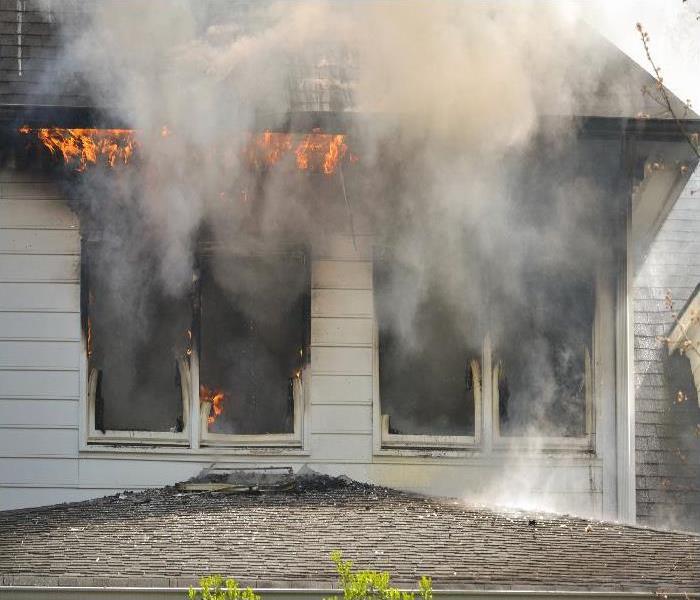Is Getting Rid of Smoke Residue Possible without Damaging Surfaces in Dunedin?
10/17/2020 (Permalink)
 Identifying the type of smoke residues in your home is vital to performing the necessary restoration steps.
Identifying the type of smoke residues in your home is vital to performing the necessary restoration steps.
SERVPRO Provides Dunedin Residents with Expert Fire Damage Restoration Technicians.
What is the best method for cleaning smoke residues?
After a house fire in your Dunedin home, there is likely to be significant blackening of walls, ceilings, and surfaces due to smoke. Cleaning these residues requires careful planning. Not all smoke residues are the same, with each residue requiring different methods of cleaning. There are four broad categories for smoke damages that technicians need to be aware of when performing restoration. An excellent way to identify smoke residue is by asking what type of material, or fuel, combusted to cause the fire. The material composition that burns is an influential factor in smoke damages.
What are the four types of smoke residue?
• Dry smoke residues which are usually the result of natural materials combusting
• Wet smoke residues, which include synthetic materials like plastics
• Protein smoke residues are the result of burning animal fats and common in kitchen fires.
• Fuel oil smoke residues can occur from furnace puff back or other fires involving an oil fuel source.
What ways are useful for identifying protein fire residues?
A kitchen is a common site for fire damage restoration to take place in your Dunedin home. Kitchen fires typically involve burning meat such as poultry, rudiment meat, and fish. An excellent way to identify protein smoke residues is by inspecting the color of the soils. These soils are typically greasy and yellow or amber. Wiping a small part of the wall can help determine smoke residues since these are often pale yellow or amber but can be invisible. A sure sign that protein residues exist is pungent malodors. SERVPRO uses an oil-based solvent to tackle these greasy deposits and typically resort to deodorizing the area to deal with malodors.
What other factors influence smoke residues?
• Fast-combusting fires with much oxygen produce dry smokes.
• Slow-burning fires typically produce a wet smoke residue.
• Material composition, either natural or synthetic, can produce wet or dry smoke, respectively.
Identifying the type of smoke residues in your home is vital to performing the necessary restoration steps. Contact SERVPRO of Dunedin / Palm Harbor South at (727) 793-1333.






 24/7 Emergency Service
24/7 Emergency Service